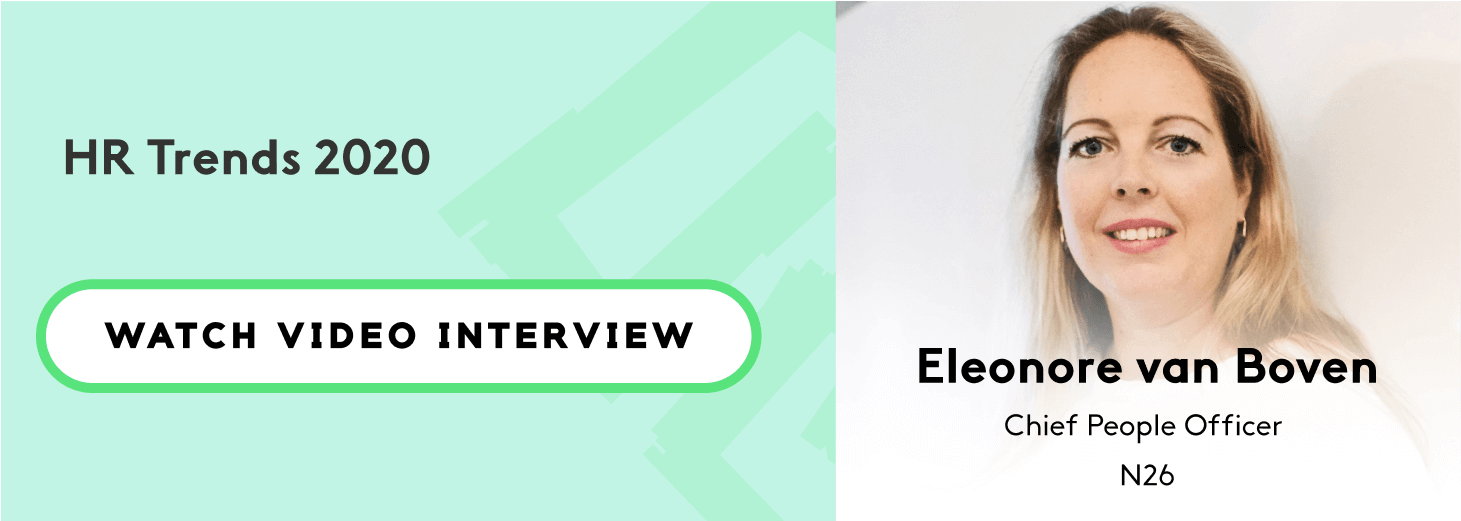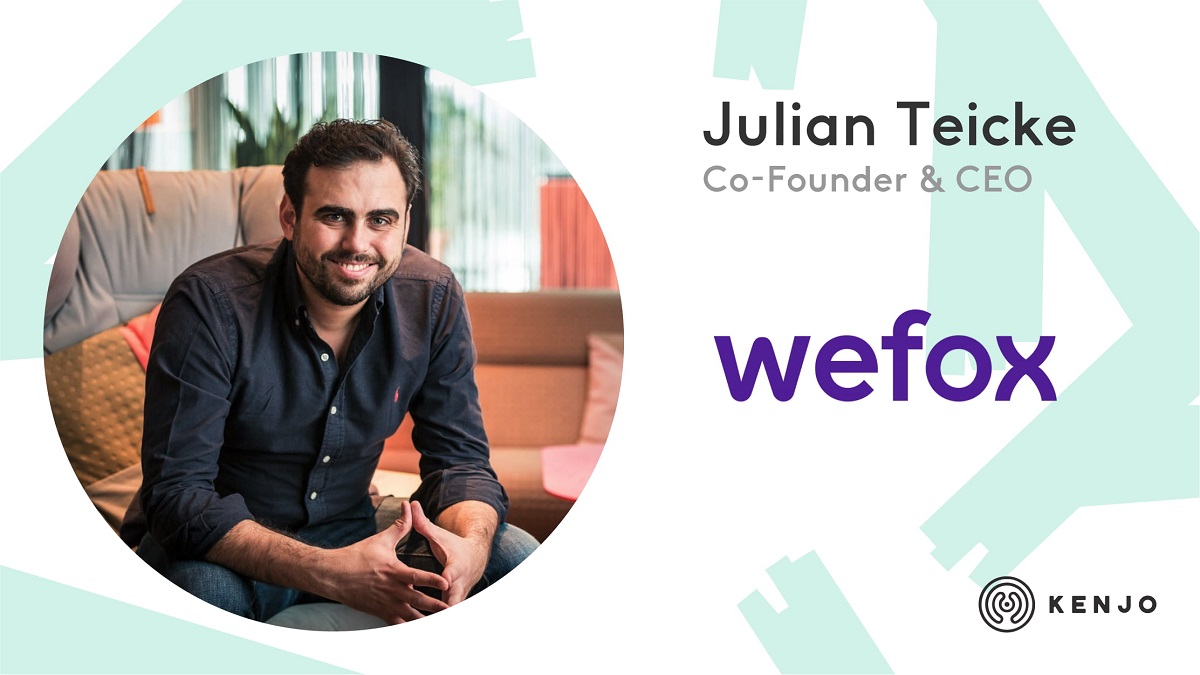During the last couple of months, we’ve received a sneak preview into how the future of work will look. COVID-19 has dramatically changed the world we live in today. Organisations are slowly realising that they will need to adapt and change at a much faster rate than we had anticipated prior to the pandemic.
In today’s interview, it’s our pleasure to talk with Kenjo’s founding investor and board president, Julian Teicke, about the future of work and how to prepare your company accordingly. Julian is the founder and CEO of the wefox Group, Europe’s leading InsurTech company. Moreover, in 2019, wefox became the latest fintech unicorn.
Having created successful businesses, leading them through hypergrowth and, at the same time, focussing on employee engagement, Julian sees entrepreneurship as the best vehicle for personal growth. Julian is a passionate entrepreneur and he knows how to prepare for the future of work, putting the people of a company first. In our interview, we learn
- How the future of work will look
- How and why he started investing in HR
- About the importance of workplace culture
- How Julian is leading wefox through the COVID-19 crisis with 600 employees in several European countries.
Watch the full video on the future of work in 2020 with Julian Teicke or read a brief summary below.
Biggest challenges of the future of work 2020
As humans, we prefer stability over rapid change. Amanda Habermann explains in her Psychology Today article that any kind of change can go against the neural pathways that have become automatic to us. We all know that too well; it can be hard to get going at first.
The entire world has had to rapidly switch to remote working during the recent months of coronavirus lockdown, exposing the need to tackle the change management process.
Very early on, Julian and his team at wefox asked themselves what they could do to help their employees “feel safe in their own skin despite the rapid change around them.”
For Julian, adjusting to the rapid transformation will prove to be the biggest challenge for organisations. We need to teach employees to better cope with change, or even to embrace it because it really is the only constant. As he puts it:
“If there isn’t enough change, something is wrong.” - Julian Teicke
Hence, some of the questions CEOs and HR managers need to ask themselves are:
-
How do I teach my people to change something they love?
-
How do I make them understand that a day like yesterday is not a good thing, but a cause for concern?
-
How to communicate change and problems?

Trends in remote working
Julian keeps pointing out that in the future, organisations will need to be much more decentralised. They have to enable people from all around the world to work collectively towards a purpose. This development is vital as it will drive a company’s HR managers to focus on establishing a company-wide culture without personal contact in the office.
So, he essentially believes that the future evolution of HR will focus on people. It’s about enabling people to fully develop their professional potential while being scattered around the globe.
That’s why HR professionals will take an active role within future organisations and “not only represent, but fight for the will of the people.”
“HR doesn’t just define the HR strategy. They actually define the strategy of the entire organisation.” - Julian Teicke

HR software to support this development
HR software will allow HR professionals and companies to much better understand
Also, HR software will enable organisations to become much more decentralised than they are today. This is probably the most important factor of all: there will no longer be a war for talent in a particular region.
Corona has shown that people from all around the world can work together irrespective of their location. In Julian's words:
“So what we are really looking at now is a war for talent on a global scale.” - Julian Teicke
Thank you, Julian, for taking some time from your busy schedule to talk to us!
Would you like to watch more of our interviews? Then have a look at “Scaling up your HR department” with Andrew Levens from Urban Sports Club and “HR trends 2020” with our investor Noor van Boven.


